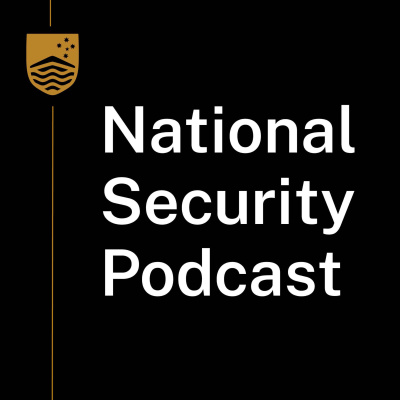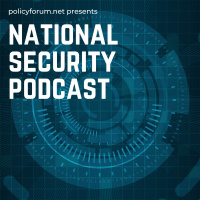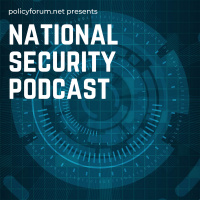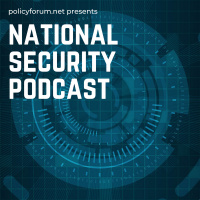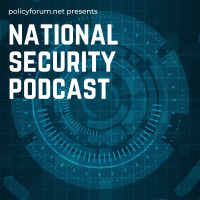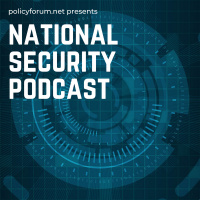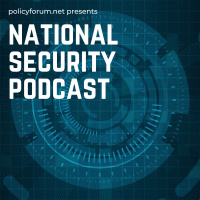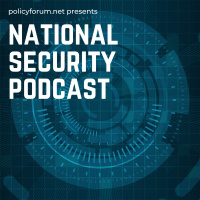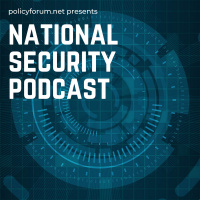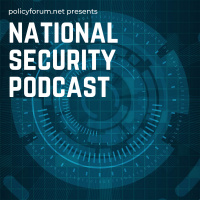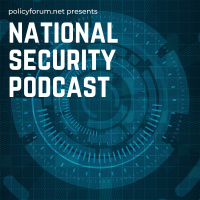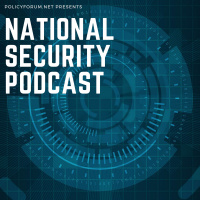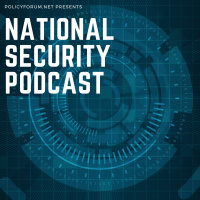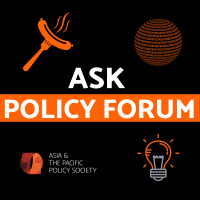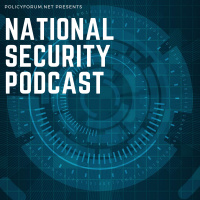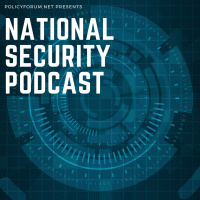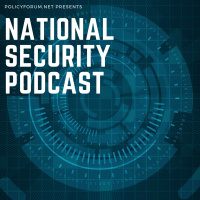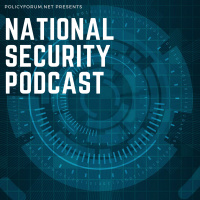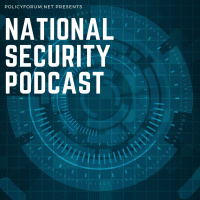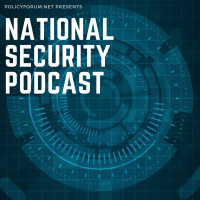Sinopsis
Chris Farnham and Katherine Mansted bring you expert analysis, insights and opinion on Australia and the region's national security challenges in this pod from Policy Forum. Produced with the support of the ANU National Security College.
Episodios
-
Australia’s Cyber Security Strategy
12/08/2020 Duración: 40minIn this special episode of the National Security Podcast, Katherine Mansted is joined by Alastair MacGibbon, Gai Brodtmann and Rory Medcalf to discuss Australia's recently released national Cyber Security Strategy.Released on 6 August, the Australian government released the 2020 Cyber Security Strategy. Citing the increased interconnectivity and reliance on the Internet as we transition to a digital society, a process supercharged by the COVID-19 pandemic, the document paints a daunting picture of a riskier and more uncertain landscape for national security. But does this strategy go far enough? In this National Security Podcast, the panel consider how the Strategy divides threats from nation states and criminal actors, and whether it communicates in a way that will speak to Australian society as a whole. We also ask whether the time has passed for refraining from naming those actors that threaten Australia’s cybersecurity. Gai Brodtmann is convenor of the National Security College’s Women In Nation
-
Digital trust and the cost of cyber failure
05/08/2020 Duración: 58minIn this episode of National Security Podcast, Katherine Mansted is joined by AustCyber CEO Michelle Price to talk about the risks of putting blind faith in the digital devices we use to run our lives and businesses.What would happen if we lost our digital connections, or access to our data? Now that people and businesses rely on digital devices for all facets of modern life, can such a disruption be quantified in dollar terms? On this National Security Podcast, Katherine Mansted is joined by AustCyber CEO Michelle Price tackle these questions and explore whether traditional modes of policy-making will continue to work in the digital age. Michelle Price is AustCyber’s inaugural Chief Operating Officer, and was the first Senior Adviser for Cyber Security at the National Security College.Katherine Mansted is a senior adviser at the National Security College and non-resident fellow at the Harvard Kennedy School’s Belfer Center for Science and International Affairs. Previously, she was a commercial
-
Great power competition with Ali Wyne
22/07/2020 Duración: 48minIn this episode of the National Security Podcast, Katherine Mansted speaks to Ali Wyne about why great powers compete, how China, Russia, and the United States are shaping the global system, and whether their behaviour is making the post-COVID-19 world more dangerous.Is competition between great powers destined to be fraught with the risk of conflict, or can it be a positive driver of global development? And how do middle powers view the future of their respective regions as the United States and China size each other up in the era of COVID-19? Katherine Mansted is joined by Ali Wyne to answer these questions and more on this episode of National Security Podcast.Ali Wyne is a nonresident senior fellow at the Atlantic Council's Scowcroft Center for Strategy and Security and a nonresident fellow at the Modern War Institute.Katherine Mansted is a senior adviser at the National Security College and non-resident fellow at the Harvard Kennedy School’s Belfer Center for Science and International Affairs. Previously,
-
Australia's Defence Strategy Update
08/07/2020 Duración: 47minIn this episode of the National Security Podcast, we are joined by former Shadow Assistant Minister for Cyber Security and Defence Gai Brodtmann, Head of the ANU Strategic and Defence Studies Centre Brendan Sargeant, and Rory Medcalf, Head of the National Security College, to examine the details and meaning of Australia's recently unveiled 2020 Defence Strategy Update and Force Structure Plan.On 1 July, Australia officially updated its defence strategy with the 2020 Defence Strategy Update and Force Structure Plan. Citing the deterioration of its regional security environment and enhanced offensive capabilities among its potential adversaries, it calls for an upgrading of Australia's defence hardware. So, is offensive deterrence a new strategy for Australia, and could increased war-fighting capabilities drive an arms race in the region? The panel also ask which states may be the intended audience for this strategy update, and how likely the countries of the region may be to see increased Austra
-
Information warfare with Major General Marcus Thompson
01/07/2020 Duración: 37minIn this episode of the National Security Podcast, Katherine Mansted is joined by Major General Marcus Thompson to discuss the nature of information warfare in the 21st century, and how it fits within Australia's broader defence mission.In 2017, Australia formed its first Information Warfare Division (IWD) in the Department of Defence. Tasked with achieving information superiority over Australia’s adversaries and gaining an advantage which can be exploited in the traditional air, land, and sea domains, the IWD is headed up by Major General Marcus Thompson. Three years into its life, the IWD has overcome many challenges, but what threats and opportunities are on the horizon? Have COVID-19 and the recent bushfires changed public expectations about the role of the Australian Defence Force in helping with unconventional security threats at home? In this National Security Podcast, we will tackle these questions, and discuss whether there is a need for wider public discussion and awareness of the thre
-
Foreign Minister Marise Payne on Australia and COVID-19
17/06/2020 Duración: 47minOn 16 June, Australian Foreign Minister Marise Payne delivered a policy address to the National Security College on Australia and the world in the time of COVID-19. Her remarks, and the following discussion of Australia's future in the region, make up this special episode of National Security Podcast.Is China using the COVID-19 crisis as a reason to spread disinformation about Australia, and how can international institutions, such as the World Health Organization, be safeguarded so that they can do their work without outside interference? In this episode, we host the foreign minister's speech on Australia's place in the world and COVID-19 and her discussion with Professor Rory Medcalf, Head of the National Security College. Senator the Hon Marise Payne is Minister for Foreign Affairs and Minister for Women in the Commonwealth Government. A Senator for New South Wales since 1997, she has more than two decades’ parliamentary experience including 12 years’ membership of the Joint Standing Committ
-
Foreign investment and national security
10/06/2020 Duración: 35minIn this episode of National Security Podcast, we speak with the Perth USAsia Centre's Dr Jeffrey Wilson about Australia's new investment measures and a shift toward caution in the face of foreign purchasing power.In recent years, many developed economies have been enhancing their foreign investment laws with a heightened focus on national security. On Friday 5 June, Australia announced that it would be following suit, introducing new screening measures to ensure foreign nationals and organisations would not endanger Australia by buying controlling stakes in sensitive areas of the economy. But what is driving this shift in the way countries view foreign investment, and why has Australia chosen now to readjust the way it understands its vulnerabilities and risks?Dr Jeffrey Wilson is Research Director at the Perth USAsia Centre. He provides leadership and strategic direction in developing the Centre’s research program across its publications, policy and dialogue activities. Jeffrey specialises in the region
-
Indonesia and COVID-19
03/06/2020 Duración: 59minOn this special episode of the National Security Podcast, we speak to three leading Indonesia experts about the impact of the coronavirus pandemic on the country's national security.How has Indonesia been impacted by COVID-19 and what are the implications for its national security? Has the pandemic offered terrorist organisations opportunities or new challenges? How will this health crisis influence the increased intensity of the conflict in West Papua? And how will the spread of the virus, which first emerged in China, impact the Chinese diaspora in Indonesia? In this episode of National Security Podcast we speak to Sidney Jones, Dr Quinton Temby, and Dr Charlotte Setijadi about the implications of COVID-19 for Indonesia’s national security. This episode is an edited version of a live podcast that was recorded on 21 May 2020. Sidney Jones is the Director of the Institute for Policy Analysis of Conflict. She has previously held leadership roles at the International Crisis Group and worked with the F
-
American national security and the 2020 election
15/05/2020 Duración: 45minIn this National Security Podcast, we speak to Professor Tom Nichols about international and domestic national security influences on the United States' 2020 elections. As the United States moves toward an election in the midst of a pandemic and increasing tensions with China, and in the shadow of Russian interference, national security is going to be central to its 2020 presidential and congressional elections. Should we expect more Russian interference and could they be successful a second time? Can America’s alliance network survive a second term of President Trump? Why are there armed civilians raiding state capitals, and what does this mean for domestic security? And what would happen if President Trump refused to accept the result of an election that ended his time in office? We tackle these questions and more in this National Security Podcast.Tom Nichols is Professor of National Security Affairs at the US Naval War College, an Adjunct Professor at the Harvard Extension School, a former a
-
Policy challenges of responding to climate change and COVID-19
15/04/2020 Duración: 01h08minIn this episode, we talk to the former head of Emergency Management Australia Mark Crosweller about national resilience in an era of climate change and COVID-19.How has Australia’s recent bushfire disaster impacted the way policymakers consider climate change and its impact on national security? Has COVID-19 illuminated the fragility of an interdependent society? What is it that keeps a former Director General of Emergency Management Australia awake at night? In this National Security Podcast, Mark Crosweller talks about our vulnerability to the increased severity of climate change-driven natural disasters, the impacts of national crises like COVID-19, and how we need to change the way we look at developing national resilience in the face of a dangerous future.Mark Crosweller was the Director General of Emergency Management Australia and led the National Resilience Taskforce for the Commonwealth Government of Australia. Mark’s professional life has seen him serve in leadership roles for state and territory, a
-
Disinformation - from climate change to COVID-19
02/04/2020 Duración: 49minHow do Australia’s experiences fit into the global contest over the climate change narrative and why is that contest now bleeding into discussion about the coronavirus pandemic? On this National Security Podcast, Chris Farnham is joined by Chris Zappone to tackle a growing spread of disinformation in the media and how it can affect a crisis.Australia’s recent bushfire crisis saw the nation’s computer screens, airwaves, and television screens dragged into the global disinformation storm over climate change. Who were the actors behind messages and memes claiming that the fires were the work of arsonists or climate change activists, and what were their aims? In this podcast we speak to Chris Zappone, Digital Foreign Editor for The Age and TheSydney Morning Herald to determine the answer to this and more on disinformation, from climate change to COVID-19.Chris Zappone is Digital Foreign Editor at The Age and Sydney Morning Herald, where his writing focuses on the interplay between technol
-
The implications of climate change for national security
17/03/2020 Duración: 40minHow do the impacts of climate change make it a national security issue, and how is climate change going to affect Australia’s preparedness for national resilience and even war? In this episode of the National Security Podcast, Chris Farnham speaks with Associate Professor Matt McDonald about where major risks likely lie for national defence, societal resilience, and regional security in the face of the climate crisis.Associate Professor Matt McDonald is Reader in International Relations at the School of Political Science and International Studies of the University of Queensland. His research focuses on critical theoretical approaches to security and their application to environmental change, Australian security policy, climate politics, and security dynamics in Asia and the Pacific.Chris Farnham is the presenter of the National Security Podcast. He joined the National Security College in June 2015 and is currently Senior Outreach and Policy Officer. His career focus has been on geopolitics
-
Rory Medcalf on the contest for the Indo-Pacific
05/03/2020 Duración: 57minOn this episode, Chris Farnham chats with Professor Rory Medcalf about the future of the Indo-Pacific region and Australia's place in it.Will any one country have the power to map the future of a region so central to global prosperity and security? If diplomacy fails, the Indo-Pacific will be the theatre of the first general war since 1945. But if its future can be secured, the Indo-Pacific will flourish as a shared space. In this episode of the National Security Podcast, Chris Farnham speaks to Rory Medcalf about his new book, Contest for the Indo-Pacific: why China won’t map the future and Australia’s place in a multipolar region.Rory Medcalf is the head of the National Security College at The Australian National University. His professional background involves more than two decades of experience across diplomacy, intelligence analysis, think tanks, and journalism.Chris Farnham is the presenter of the National Security Podcast. He joined the National Security College in June 2015 an
-
Ask Policy Forum: The podcast where you ask the questions
20/02/2020 Duración: 01h01minJoin us at the pod squad members’ lounge as we field your questions on all sorts of issues, from how countries are performing on emissions reduction to which politician you’d least like to be stuck in conversation with at the annual Midwinter Ball.On the first episode of our special Ask Policy Forum series, regular hosts and special guests crack a beverage and chat about what you want to know. Led by Chris Farnham of the National Security Podcast, kick back as Mark Kenny of Democracy Sausage, Martyn Pearce of Policy Forum Pod, Professor Mark Howden, Associate Professor Carolyn Hendriks and Dr Arnagretta Hunter field your questions on life, the universe and everything.Future episodes of Ask Policy Forum will be released only to members of our Policy Forum Pod Facebook group, so make sure you jump online and join to get access to this exclusive monthly pod.Mark Howden is Director of the ANU Climate Change Institute. Mark was a major contributor to the Intergovernmental Panel on Climate Change reports for t
-
Populism and Australia’s future in Asia
12/02/2020 Duración: 55minIn this episode of National Security Podcast, Sam Roggeveen joins Chris Farnham and Katherine Mansted to talk about his recent paper Our Very Own Brexit: Australia’s Hollow Politics and Where It Could Lead Us.Is Australia seeing a surge in conservative sentiment, or is the nation being led by political parties in search of a new identity? On this National Security Podcast, we are joined by Sam Roggeveen of the Lowy Institute to discuss where and how domestic politics and foreign policy interact, and ask what it would mean for Australia’s place in Asia if the country’s politics were to turn on multiculturalism.Sam Roggeveen is Director of the Lowy Institute’s International Security Program and a Visiting Fellow at The Australian National University's Strategic and Defence Studies Centre.Katherine Mansted is a senior adviser at the National Security College and non-resident fellow at the Harvard Kennedy School’s Belfer Center for Science and International Affairs. Previously, she was a commercial soli
-
Freedom of the press and the year that was 2019
10/12/2019 Duración: 42minIs press freedom a national security issue? If it is, what does that mean for Australia’s regional relations and its fight against foreign interference? In this episode of the National Security Podcast, Katherine Mansted and Rory Medcalf discuss their recent submission to the Parliamentary Joint Committee on Intelligence and National Security on freedom of the press. They also unpack pivotal national security issues for the region in the past year and discuss what policymakers should keep an eye out for in 2020.Rory Medcalf is the head of the National Security College at The Australian National University. His professional background involves more than two decades of experience across diplomacy, intelligence analysis, think tanks and journalism.Katherine Mansted is a Senior Adviser for Public Policy at the National Security College and a Non-resident Fellow at the Harvard Kennedy School’s Belfer Center for Science and International Affairs.Chris Farnham is the presenter of the National Security Podcast. He j
-
Impeachment, foreign policy, and national security
03/12/2019 Duración: 57minIn this National Security Podcast, Dr Charles Edel and Dr Gorana Grgic discuss the details of the new United States Studies Centre report, Impeachment: The insider’s guide. Dr Edel explains the origins of the impeachment process and how it works, and when it was designed to be applied. Dr Grgic takes us through President Trump's peculiar brand of foreign policy-making, what it means for states in Eastern Europe facing Russian aggression, and how it came to be that Rudi Giuliani was able to run his own parallel and unaccountable US foreign policy in Ukraine. Finally, we ask what this all means for America’s allies and security partners in the Indo-Pacific and beyond.Charles Edel is Senior Fellow and Visiting Scholar at the United States Studies Centre at the University of Sydney. Prior to this appointment, he was Associate Professor of Strategy and Policy at the US Naval War College and served on the US Secretary of State’s Policy Planning Staff from 2015-2017.Gorana Grgic is a jointly appointed Lecturer at th
-
Women in National Security: Hon Mariya Didi, Minister of Defence of the Republic of Maldives
27/11/2019 Duración: 26minIn this National Security Podcast, Defence Minister Mariya Didi explains what drives the Maldives to look to its democratic neighbours, India and Sri Lanka, as the nation’s security partners and most important relationships. She talks of the impact of climate change on the island nation and tells us what it is like to live on and make policy for islands whose highest elevation is less than 5 metres above sea level as oceans rise. In a very candid and personal way, Minister Didi also details the struggle for democracy in the Maldives. She reflects on her experience of being ousted by the country’s security forces, only to return to government and command those very same forces as their Defence Minister. Minister Didi also provides insight into her leadership style, the pathway to reconciliation, and the sources of her personal courage and motivation.Mariya Didi is the current Minister for Defence of the Republic of Maldives, a former Member of Parliament and a leading human rights activist in the country.Chris
-
Techlosophy and the future of security
06/11/2019 Duración: 46minIn this National Security Podcast, Zac Rogers and Katherine Mansted talk about why political leaders have long been attracted to the idea that technology is a revolutionary key to progress and power. They also discusses how ideas about technology and modernity have animated brutal political regimes, global business models, and ideologies – from Leninism to Maoism. From China’s emerging brand of 'techno-authoritarianism' to the 'technological nihilism' of some Silicon Valley companies, we ask how emerging technologies are shaping politics, power, and security.Hugely powerful digital corporations shape our daily preferences and behaviours, and potentially even our brains. Is the digital revolution on track to be an 'organ transplant the body rejects'? How can governments tame technology to serve their interests and values? And what would a whole-of-society conversation about digital democracy look like?Zac Rogers is Research Lead at the newly-established Jeff Bleich Centre for the US Alliance in Digital Technol
-
Right-wing extremism and domestic terror (part two)
22/10/2019 Duración: 42minIn this National Security Podcast, Nicholas Rasmussen, former director of national counter-terrorism in the United States, and Jacinta Carroll, Australian policy professional in countering violent extremism, join Chris Farnham to talk about how current policy is hampering a whole-of-government response to domestic terrorism. The panel discuss how extremism policy differs from country to country, the role of politicians, and the tech sector's responsibility to recognise the difference between freedom of expression and the encouragement of violence.Jacinta Carroll is the Director of National Security Policy at the ANU National Security College. She was previously the inaugural head of ASPI’s Counter-Terrorism Policy Centre.Nicholas Rasmussen is a national security expert with over 27 years in US government service. He is Vice-Chancellor’s Distinguished Visiting Fellow at The Australian National University, former Director of the US National Counterterrorism Center, and current Senior Director of the McCain Inst
